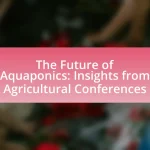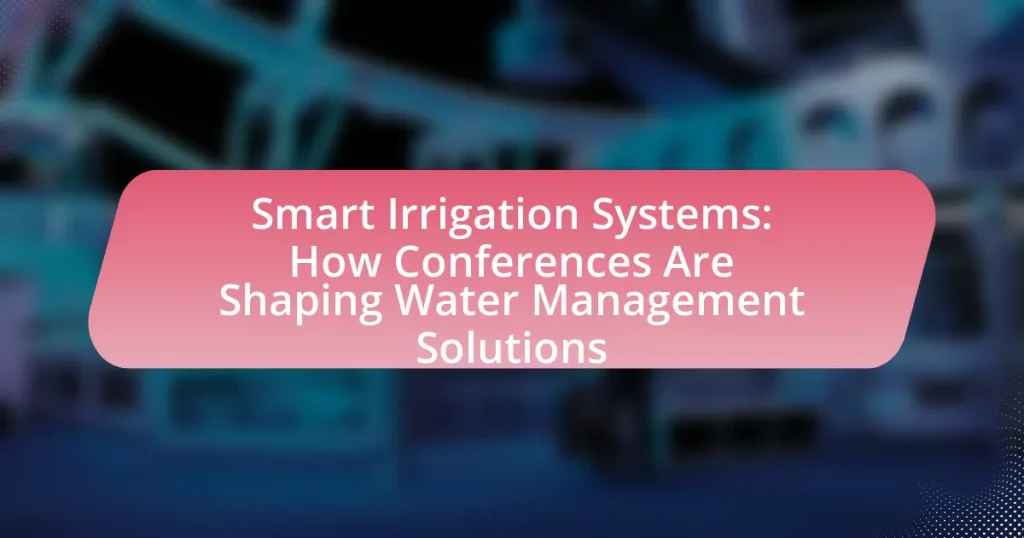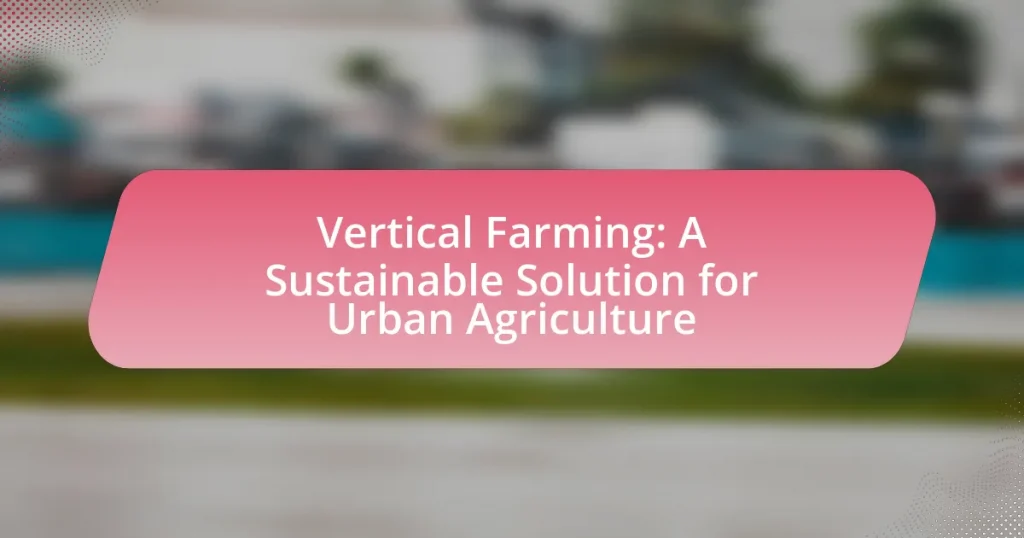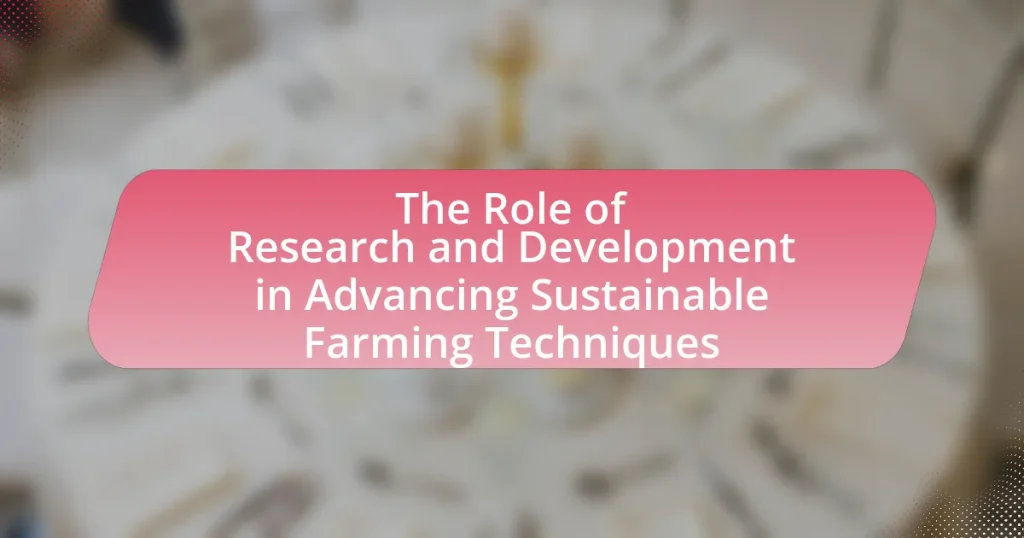Smart irrigation systems are advanced technologies that optimize water usage in agriculture and landscaping by utilizing sensors, weather data, and automated controls. These systems can reduce water consumption by 20-50%, promoting sustainable water management practices. The article explores how smart irrigation systems function, the technologies integrated into them, and their benefits, including enhanced efficiency and economic advantages for farmers. Additionally, it discusses the role of conferences in advancing smart irrigation solutions, highlighting key topics, networking opportunities, and future trends that shape water management strategies in response to climate change and resource scarcity.
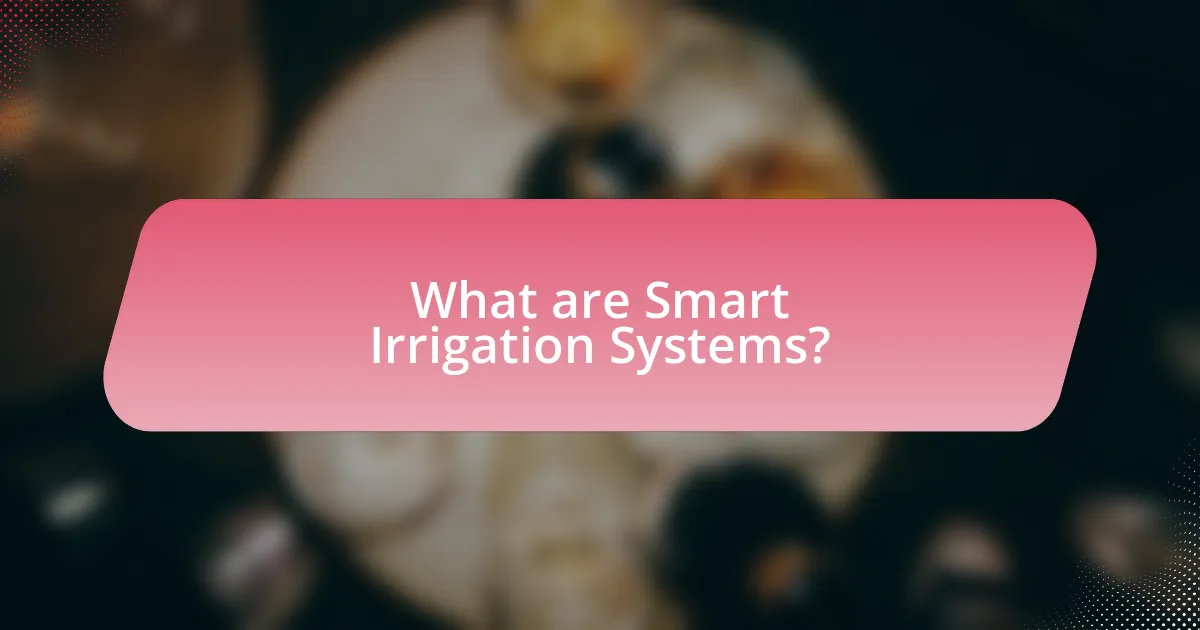
What are Smart Irrigation Systems?
Smart irrigation systems are advanced technologies designed to optimize water usage in agricultural and landscaping applications. These systems utilize sensors, weather data, and automated controls to deliver precise amounts of water based on real-time conditions, significantly reducing water waste. According to the U.S. Environmental Protection Agency, smart irrigation can reduce water consumption by 20-50%, demonstrating their effectiveness in promoting sustainable water management practices.
How do Smart Irrigation Systems function?
Smart irrigation systems function by utilizing sensors, weather data, and automated controls to optimize water usage for irrigation. These systems collect real-time data on soil moisture, temperature, and precipitation, allowing them to determine the precise amount of water needed for plants. For instance, a study by the University of California found that smart irrigation can reduce water usage by up to 50% compared to traditional methods. By integrating this data with scheduling algorithms, smart irrigation systems can adjust watering times and durations, ensuring efficient water application while promoting healthy plant growth.
What technologies are integrated into Smart Irrigation Systems?
Smart Irrigation Systems integrate various technologies including soil moisture sensors, weather-based controllers, and remote sensing technologies. Soil moisture sensors measure the water content in the soil, allowing for precise irrigation based on actual needs rather than schedules. Weather-based controllers utilize local weather data to adjust irrigation schedules, optimizing water use according to rainfall and evaporation rates. Remote sensing technologies, such as satellite imagery and drones, provide real-time data on crop health and moisture levels, further enhancing irrigation efficiency. These technologies collectively contribute to sustainable water management practices in agriculture.
How do sensors and data analytics enhance irrigation efficiency?
Sensors and data analytics enhance irrigation efficiency by providing real-time monitoring and precise data-driven insights into soil moisture levels, weather conditions, and crop water requirements. This technology enables farmers to optimize water usage, reducing waste and ensuring that crops receive the appropriate amount of water at the right time. For instance, studies have shown that implementing soil moisture sensors can lead to water savings of up to 30% while maintaining crop yield. Additionally, data analytics can predict irrigation needs based on historical data and weather forecasts, further improving water management strategies.
What are the key benefits of Smart Irrigation Systems?
Smart Irrigation Systems provide efficient water management, reducing water usage by up to 50% compared to traditional methods. These systems utilize sensors and weather data to optimize irrigation schedules, ensuring that plants receive the right amount of water at the right time. This precision not only conserves water but also enhances plant health and crop yields, as evidenced by studies showing that smart irrigation can increase agricultural productivity by 20-30%. Additionally, these systems can lower operational costs by minimizing water waste and reducing the need for manual labor in irrigation management.
How do Smart Irrigation Systems contribute to water conservation?
Smart irrigation systems contribute to water conservation by utilizing advanced technologies such as sensors, weather data, and automated controls to optimize water usage. These systems adjust irrigation schedules and amounts based on real-time environmental conditions, significantly reducing water waste. For instance, studies have shown that smart irrigation can reduce water consumption by up to 30% compared to traditional methods, as they apply water only when necessary and in precise amounts. This efficiency not only conserves water but also promotes healthier plant growth by preventing overwatering and ensuring that plants receive the right amount of moisture.
What economic advantages do Smart Irrigation Systems provide to farmers?
Smart Irrigation Systems provide significant economic advantages to farmers by optimizing water usage and reducing costs. These systems utilize advanced technologies such as sensors and data analytics to deliver precise amounts of water based on real-time conditions, which leads to lower water bills and reduced energy costs associated with pumping water. For instance, studies have shown that farmers can achieve water savings of up to 30% when implementing smart irrigation, translating to substantial cost reductions. Additionally, improved crop yields resulting from optimal irrigation practices can enhance overall profitability, with some reports indicating yield increases of 10-20% in crops like corn and soybeans.
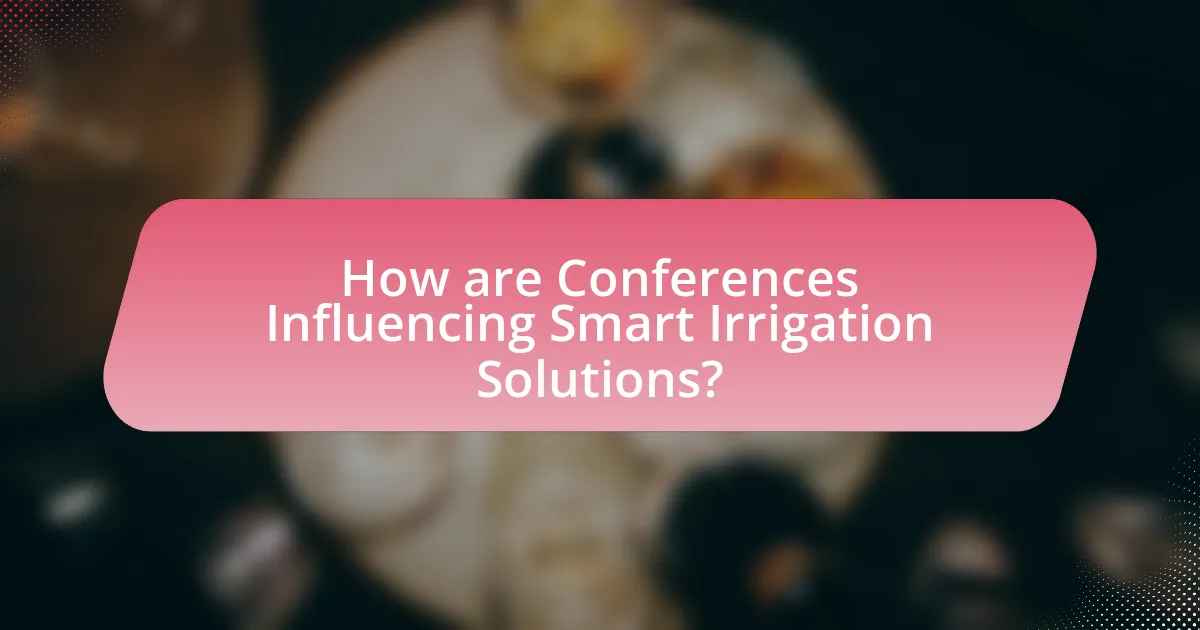
How are Conferences Influencing Smart Irrigation Solutions?
Conferences are influencing smart irrigation solutions by facilitating knowledge exchange, showcasing innovative technologies, and fostering collaboration among industry stakeholders. These events bring together researchers, practitioners, and technology developers, allowing them to share best practices and recent advancements in irrigation technology. For instance, the International Irrigation Show has featured cutting-edge smart irrigation systems that utilize data analytics and IoT for efficient water management. Additionally, conferences often result in partnerships that lead to the development of new solutions, as seen in the collaborations formed during the World Irrigation Forum, which emphasizes sustainable practices and resource optimization.
What role do conferences play in advancing Smart Irrigation technology?
Conferences play a crucial role in advancing Smart Irrigation technology by facilitating knowledge exchange, networking opportunities, and showcasing innovative solutions. These events bring together researchers, industry professionals, and policymakers, allowing them to share the latest research findings, technological advancements, and best practices in smart irrigation. For instance, conferences like the Irrigation Association’s Annual Conference provide a platform for experts to present case studies and discuss the effectiveness of various smart irrigation systems, which can lead to improved adoption and implementation. Additionally, networking at these conferences fosters collaborations that can drive further innovation and investment in smart irrigation technologies, ultimately enhancing water management solutions.
How do networking opportunities at conferences foster innovation?
Networking opportunities at conferences foster innovation by facilitating collaboration among diverse professionals, which leads to the exchange of ideas and knowledge. When individuals from various sectors, such as technology, agriculture, and environmental science, come together, they can share insights and experiences that inspire new approaches to challenges. For instance, a study by the National Academy of Sciences found that interdisciplinary collaboration significantly enhances problem-solving capabilities, particularly in complex fields like water management. This collaborative environment encourages participants to brainstorm innovative solutions, such as advancements in smart irrigation systems, ultimately driving progress in water management solutions.
What are the key topics discussed at Smart Irrigation conferences?
Key topics discussed at Smart Irrigation conferences include advancements in irrigation technology, water conservation strategies, and data-driven decision-making for efficient water management. These conferences often feature presentations on smart sensors, automated irrigation systems, and the integration of IoT (Internet of Things) in agriculture. Additionally, discussions frequently cover regulatory frameworks, case studies on successful implementations, and the economic benefits of adopting smart irrigation practices. Such topics are crucial as they address the growing need for sustainable water use in agriculture, supported by research indicating that smart irrigation can reduce water usage by up to 50% while maintaining crop yields.
How do industry experts contribute to Smart Irrigation discussions at conferences?
Industry experts contribute to Smart Irrigation discussions at conferences by sharing their knowledge, presenting research findings, and facilitating networking opportunities. Their presentations often include data-driven insights on the latest technologies and practices in irrigation management, which help attendees understand current trends and challenges. For example, experts may discuss the effectiveness of sensor-based irrigation systems, supported by case studies demonstrating water savings and improved crop yields. Additionally, these professionals often lead panel discussions that encourage dialogue among stakeholders, fostering collaboration and innovation in water management solutions.
What insights do keynote speakers provide on future trends?
Keynote speakers provide insights on future trends in smart irrigation systems by highlighting advancements in technology, sustainability practices, and data-driven decision-making. They emphasize the integration of IoT devices and AI analytics to optimize water usage, which can lead to significant reductions in waste and improved crop yields. For instance, a report from the International Society for Horticultural Science indicates that smart irrigation can reduce water consumption by up to 50% while maintaining agricultural productivity. These insights guide stakeholders in adapting to climate change and resource scarcity, ensuring that water management solutions are both innovative and effective.
How do panel discussions shape the direction of Smart Irrigation solutions?
Panel discussions shape the direction of Smart Irrigation solutions by facilitating knowledge exchange among experts, stakeholders, and practitioners in the field. These discussions allow for the sharing of innovative ideas, best practices, and emerging technologies, which can lead to the development of more effective irrigation strategies. For instance, during the 2022 International Conference on Smart Irrigation, experts highlighted the importance of data analytics in optimizing water usage, influencing subsequent research and development in the sector. This collaborative environment fosters consensus on critical issues, guiding policy-making and investment in Smart Irrigation technologies.

What are the Future Trends in Smart Irrigation Systems?
Future trends in smart irrigation systems include the integration of advanced technologies such as artificial intelligence, machine learning, and IoT (Internet of Things) devices. These technologies enable real-time data collection and analysis, allowing for precise water management tailored to specific crop needs and environmental conditions. For instance, a study by the University of California found that implementing AI-driven irrigation systems can reduce water usage by up to 30% while maintaining crop yield. Additionally, the use of remote sensing and satellite imagery is expected to enhance monitoring capabilities, providing farmers with actionable insights to optimize irrigation practices.
How is technology evolving in Smart Irrigation Systems?
Technology in Smart Irrigation Systems is evolving through the integration of advanced sensors, data analytics, and automation. These systems now utilize soil moisture sensors and weather data to optimize water usage, significantly reducing waste. For instance, a study by the University of California found that smart irrigation can reduce water consumption by up to 30% compared to traditional methods. Additionally, the adoption of IoT (Internet of Things) devices allows for real-time monitoring and control, enabling farmers to make data-driven decisions that enhance crop yield while conserving resources.
What emerging technologies are expected to impact Smart Irrigation?
Emerging technologies expected to impact Smart Irrigation include IoT (Internet of Things), AI (Artificial Intelligence), and advanced sensor technologies. IoT enables real-time data collection and monitoring of soil moisture levels, weather conditions, and crop health, facilitating precise irrigation scheduling. AI algorithms analyze this data to optimize water usage and predict irrigation needs, enhancing efficiency. Advanced sensors, such as soil moisture sensors and weather stations, provide critical information that supports automated irrigation systems, ensuring that water is applied only when necessary. These technologies collectively contribute to sustainable water management in agriculture, reducing waste and improving crop yields.
How will climate change influence the development of Smart Irrigation solutions?
Climate change will significantly drive the development of Smart Irrigation solutions by necessitating more efficient water management practices. As global temperatures rise and precipitation patterns become increasingly erratic, traditional irrigation methods may become inadequate, leading to water scarcity in many regions. This urgency compels the adoption of advanced technologies, such as soil moisture sensors and weather forecasting tools, which optimize water usage based on real-time data. For instance, a study by the University of California found that implementing Smart Irrigation systems can reduce water usage by up to 30% while maintaining crop yields. This evidence underscores the critical role of Smart Irrigation in adapting to the challenges posed by climate change.
What best practices should be followed for implementing Smart Irrigation Systems?
To implement Smart Irrigation Systems effectively, it is essential to conduct a thorough site assessment to understand the specific water needs of the landscape. This assessment should include soil type, plant species, and local climate conditions, which influence irrigation requirements. Utilizing weather data and soil moisture sensors can optimize water usage by ensuring irrigation occurs only when necessary, thereby reducing waste. Additionally, integrating a centralized control system allows for real-time monitoring and adjustments based on environmental changes, enhancing efficiency. Regular maintenance of the system, including checking for leaks and ensuring sensors are functioning correctly, is crucial for long-term performance. Studies indicate that implementing these best practices can lead to water savings of up to 30% compared to traditional irrigation methods, demonstrating their effectiveness in sustainable water management.
How can farmers effectively integrate Smart Irrigation into their operations?
Farmers can effectively integrate Smart Irrigation into their operations by adopting advanced technologies such as soil moisture sensors, weather forecasting tools, and automated irrigation systems. These technologies enable precise water application based on real-time data, which optimizes water usage and enhances crop yield. For instance, a study by the University of California found that using soil moisture sensors can reduce water usage by up to 30% while maintaining crop health. Additionally, farmers can participate in workshops and conferences focused on Smart Irrigation to stay updated on best practices and innovations in water management.
What common challenges do users face with Smart Irrigation Systems?
Users face several common challenges with Smart Irrigation Systems, including high initial costs, complexity of installation, and reliance on technology. The high upfront investment can deter users, as systems often require significant financial commitment for equipment and setup. Additionally, the complexity of installation can lead to difficulties in proper configuration, which may result in inefficient water usage. Furthermore, reliance on technology poses risks, such as system failures or connectivity issues, which can disrupt irrigation schedules and lead to over- or under-watering. These challenges highlight the need for user education and support to maximize the effectiveness of Smart Irrigation Systems.






